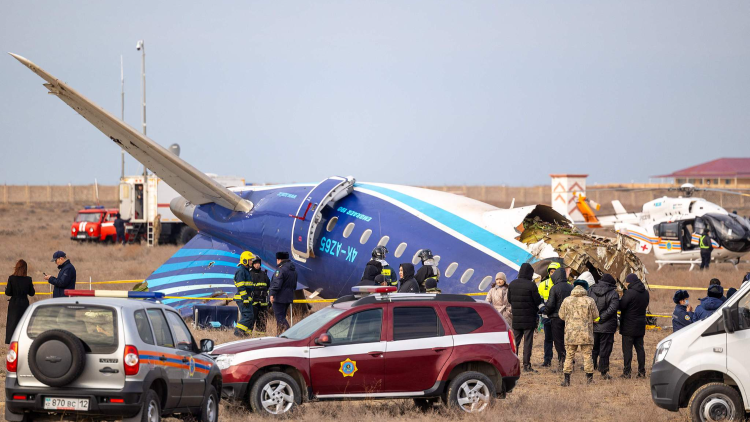A Year of Tragedy: Rising Skepticism Over 2024 Airplane Crashes
2024 has been a devastating year for the aviation industry, with significant crashes involving Jeju Air and Azerbaijan Airlines sparking public skepticism about air safety. This article delves into the details of these crashes, examines the public's reaction, and discusses the aviation industry's response to these tragedies

The aviation industry faced a grim year in 2024, marked by several tragic incidents that have left the public questioning the safety of air travel. High-profile crashes, including those of Jeju Air and Azerbaijan Airlines, have fueled skepticism and concern, with many wondering if aviation standards are slipping.
The Jeju Air and Azerbaijan Airlines Disasters
One of the deadliest incidents of 2024 occurred on December 29, when Jeju Air Flight 2216, a Boeing 737-800, crashed while attempting to land at Muan International Airport in South Korea. The crash claimed the lives of 179 out of 181 occupants, making it the worst aviation disaster in South Korean history. Investigations are ongoing, with early reports pointing to potential pilot error and adverse weather conditions.
Earlier in the year, Azerbaijan Airlines Flight 8243 faced a tragic end on December 25 during an emergency landing near Aktau, Kazakhstan. The Embraer E190AR crash resulted in 38 fatalities and 29 survivors. Azerbaijani President Ilham Aliyev accused Russian air defense systems of mistakenly shooting down the plane, citing geopolitical tensions as a possible contributing factor. A joint investigation involving Russia, Azerbaijan, and Kazakhstan is still underway.
A Worrying Pattern of Crashes in 2024
The Jeju Air and Azerbaijan Airlines crashes were not isolated events. The year saw several other notable incidents, including:
-
January 23: Northwestern Air Flight 738 crashed shortly after takeoff in Canada, killing six of the seven people on board.
-
July 24: A Saurya Airlines flight crashed in Nepal, claiming 18 lives.
-
August 9: Voepass Flight 2283 in Brazil went down in São Paulo, killing all 62 passengers and crew.
-
August 31: A Vityaz-Aero Mil Mi-8T helicopter crash in Russia resulted in 22 fatalities.
-
November 25: Swiftair Flight 5960 crashed in Lithuania, leading to one fatality and raising questions about operational safety.
Public Skepticism and Industry Accountability
These incidents have left passengers and aviation experts alike questioning whether airlines and regulatory bodies are doing enough to ensure safety. Social media platforms are buzzing with discussions under hashtags like #AirSafetyCrisis and #CrashAccountability, highlighting public distrust.
Aviation safety analysts suggest that a combination of aging aircraft, operational pressures, geopolitical conflicts, and technological reliance could be contributing to the uptick in accidents. While air travel remains statistically safe, the frequency and severity of these incidents have rattled public confidence.
Industry Response to the Crisis
In response to growing concerns, the International Civil Aviation Organization (ICAO) has initiated a global review of safety standards, urging airlines to modernize fleets and improve pilot training. Governments are also being pressed to strengthen airspace monitoring, particularly in conflict zones, to prevent accidental shoot-downs.
Airlines, meanwhile, are facing legal challenges from families of victims and advocacy groups demanding greater transparency and accountability. Many are calling for mandatory safety audits and real-time reporting of maintenance issues to prevent similar tragedies.
The Road Ahead for Aviation Safety
The events of 2024 have underscored the need for continuous vigilance in the aviation industry. While advancements in technology and safety protocols have made air travel one of the safest modes of transportation, these recent crashes serve as a sobering reminder of the risks involved.
As investigations into the Jeju Air and Azerbaijan Airlines crashes continue, the aviation industry must take decisive steps to restore public trust. Enhanced safety measures, stricter regulations, and a renewed commitment to passenger well-being are essential to prevent future tragedies and rebuild confidence in air travel.












